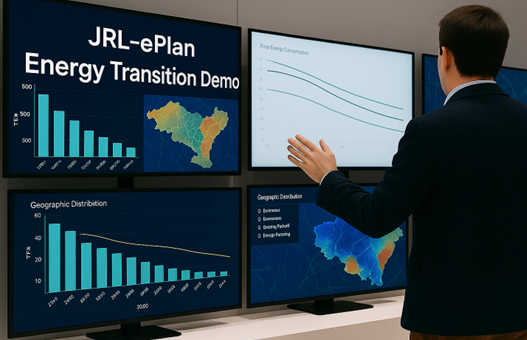"TECNALIA reinforces its commitment to knowledge transfer and applied innovation"
We analyse and anticipate the challenges of decarbonisation at different levels
Bearing in mind the EU's commitment to reach a climate-neutral economy by 2050, it is urgent to design policies and strategies to meet these objectives in such a way that ensures a socially just, environmentally sustainable and economically viable transition.
In this context, there is a great need for tools to facilitate analysis and decision-making and to steer the transition.
The demonstration shows how the integration of advanced energy models, artificial intelligence and geo-referenced data enables the challenges of decarbonisation to be analysed and anticipated at different levels - building sector, energy infrastructures, industry and regional contexts - and how these solutions can be used by energy companies, industry and public administrations for strategic decision-making.
These developments include:
- Prospective energy models, which enable the effect of new narratives, trends and technologies on the energy system to be analysed.
- Energy Systems Models to assess the joint functioning of energy systems and their progressive decarbonisation.
- Models for the analysis of electrical infrastructures and new energy vectors (hydrogen, biomethane, storage), which are essential for the integration of renewables and the planning of resilient grids.
Scientific and industrial collaboration in the field of energy planning
This demonstration is part of the JRL ePLAN strategy, an initiative led by TECNALIA (JRL Coordinator) in conjunction with UPV/EHU and BC3. This JRL seeks to strengthen scientific and industrial collaboration in the field of energy planning, and to generate support tools for decision-making based on data and prospective modelling.
By doing so, TECNALIA and its JRL ePLAN partners are reinforcing their commitment to knowledge transfer and applied innovation, bringing energy analysis and prospecting capacities developed in the Basque Country closer to industry and public administrations.

